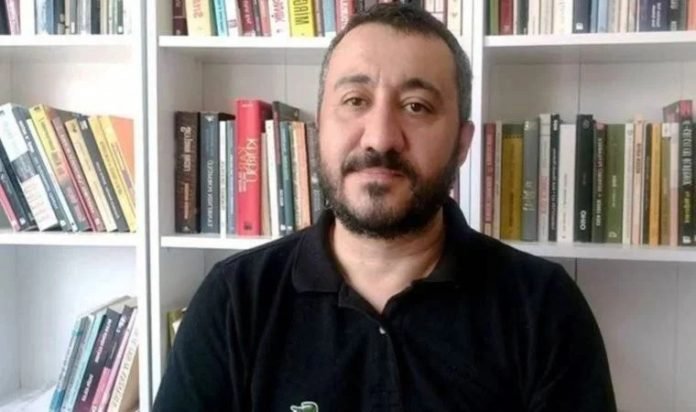Kemal Özkiraz, president of the Eurasia Public Research Center (AKAM), was hit in the head by an assailant while with his young daughter at a playground in the southern Turkish province of Antalya, Turkish Minute reported on Tuesday, citing the pollster’s tweets.
Özkiraz said in a series of tweets on Tuesday that he was boxed in the ear by an assailant wearing a cap and a mask in front of his child at the playground at around 8:05 p.m. local time.
“After walking around the park and coming up behind me, the attacker punched me in the ear. The person, whom I kicked after straightening up, shouted, ‘Who the hell do you think you are?’ and ran away,” the pollster said, adding that he was filing a report with the police.
Saldırgan parkın etrafında bemim arkamda gezindikten sonra kulağıma yumruk attı, dogrulup tekme attıgım şahıs "sen ne sandın kimsin lan" diye bağırıp hızla koştup kaçtı.
Arabayla kaçtığı yere dogru yakalamaya çalıştım ancak kaybolmuştu.
Şimdi poliste şikayet oluşturuyorum
— Kemal ÖZKİRAZ (@avrasyaanket) September 27, 2022
“They have turned the country into a huge mafia state. Whoever attacked me from behind in front of dozens of small children and my own child could have [killed me]. … For those who are wondering, I’m fine, the kids are fine, too,” he said, accusing the ruling Justice and Development Party (AKP) of responsibility for the attack.
A video of a television program in which Özkiraz said there was more oppression in Turkey under a state of emergency declared after a failed coup in 2016 than there had been after the military intervention known as the Feb. 28 postmodern coup of 1997 is among the most watched videos on social media.
Among those victimized after the postmodern coup were headscarved women, who were barred from university campuses and whose children or siblings were prohibited from joining the military.
Özkiraz said in the video released in December 2019 that those headscarved women were behind bars with their children and that soldiers who initially weren’t allowed to enlist because of their headscarved family members in the aftermath of the 1997 coup were either being tortured in prison or had to flee the country.
Özkiraz points to the fact that such oppression and persecution targeting the religious segment of society took place during the rule of the AKP government, which has its roots in political Islam.
Following the abortive putsch, the Turkish government declared a state of emergency and carried out a massive purge of state institutions under the pretext of an anti-coup fight. More than 130,000 public servants, including 29,444 members of the armed forces, were summarily removed from their jobs for alleged membership in or relationships with “terrorist organizations” by emergency decree-laws subject to neither judicial nor parliamentary scrutiny.
Thousands of former and active-duty members of the military and mothers together with their children have been detained or arrested, among others, over their alleged links to the Gülen movement, a faith-based group accused by the Turkish government and President Recep Tayyip Erdoğan of masterminding the 2016 coup and is labeled a “terrorist organization.”
Both Fethullah Gülen, a US-based Muslim cleric who inspired the movement, and members of the group strongly deny involvement in the coup attempt or any terrorist activity.
As of December 2021, there were 548 children accompanying their mothers in prison.
















